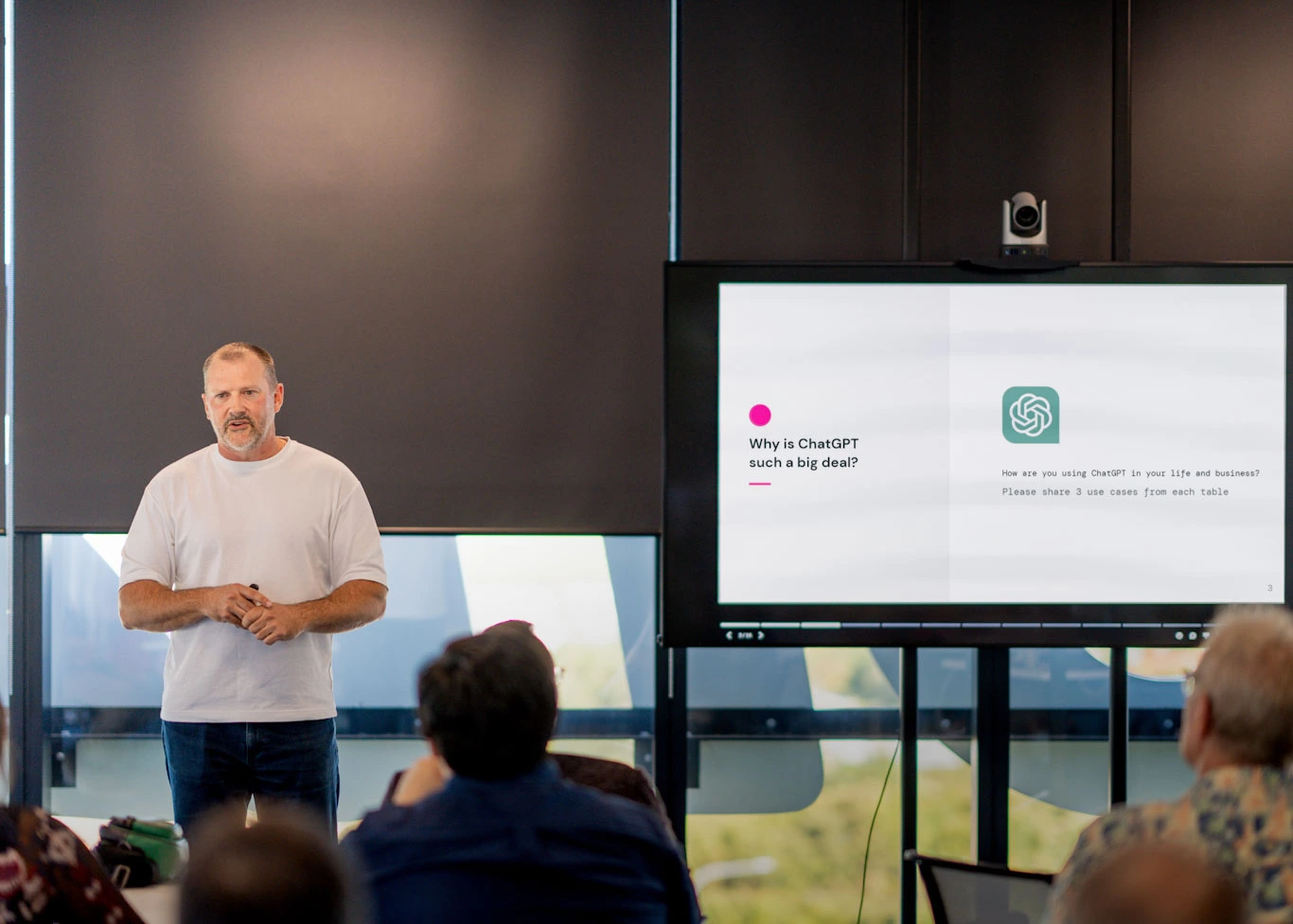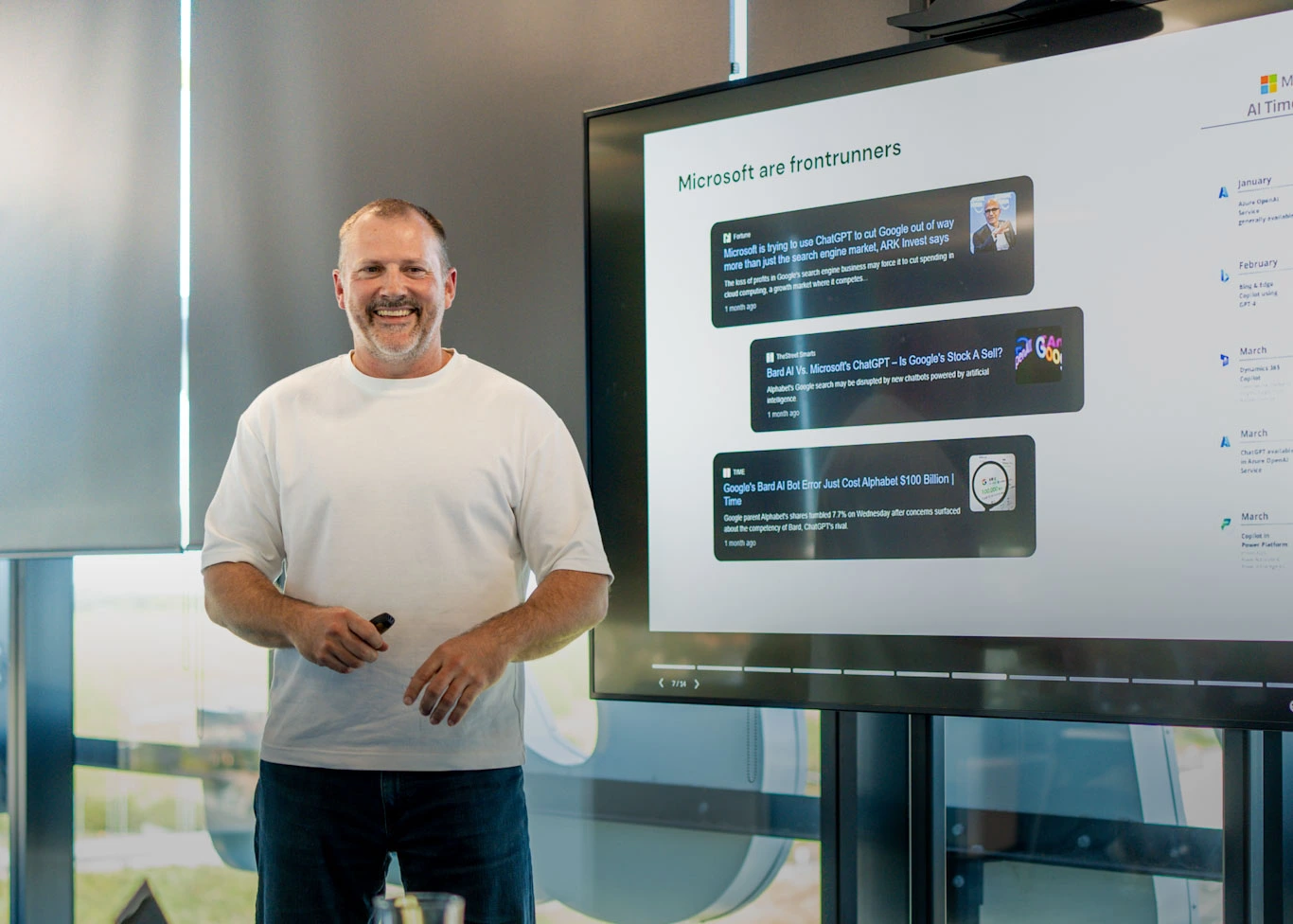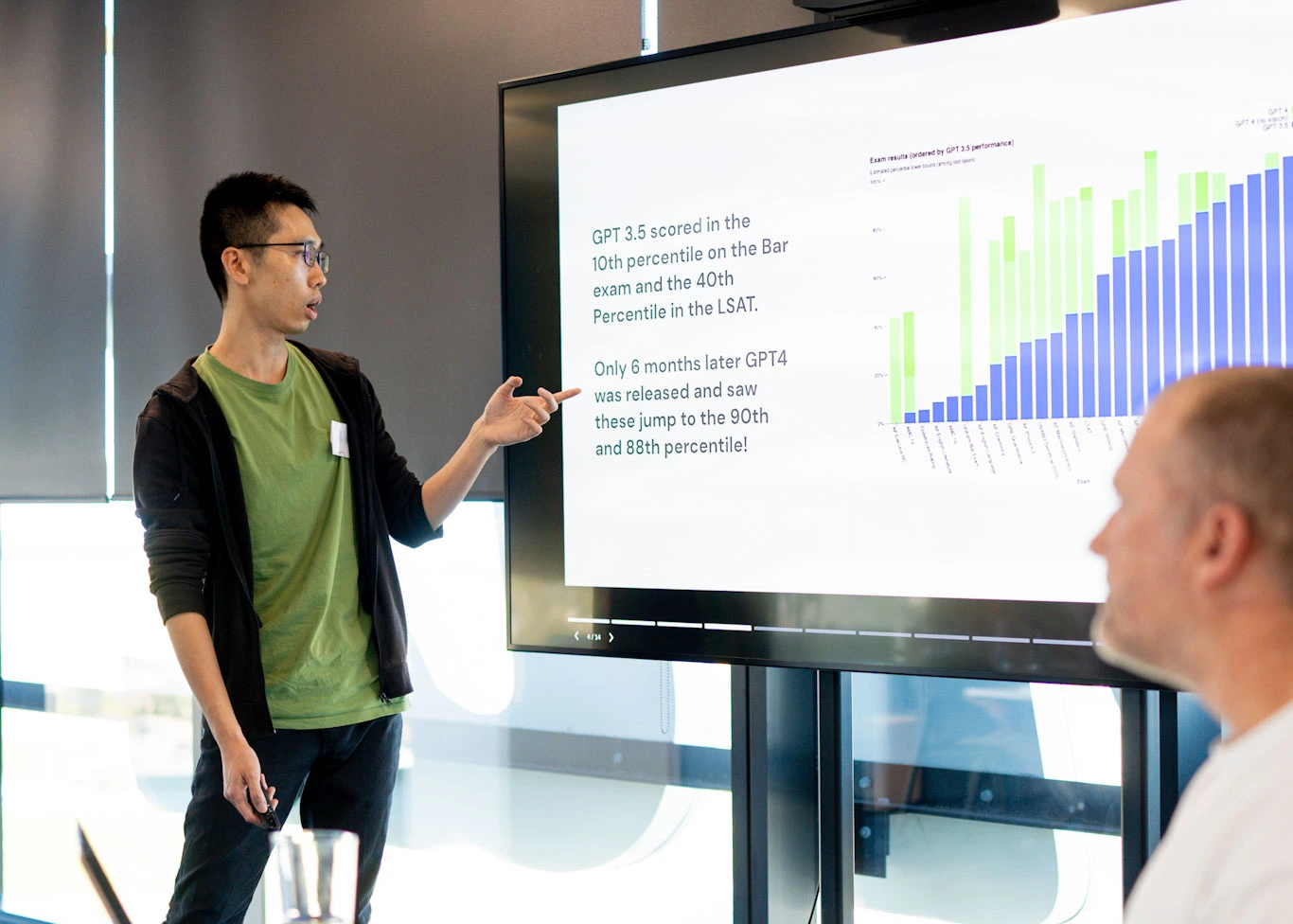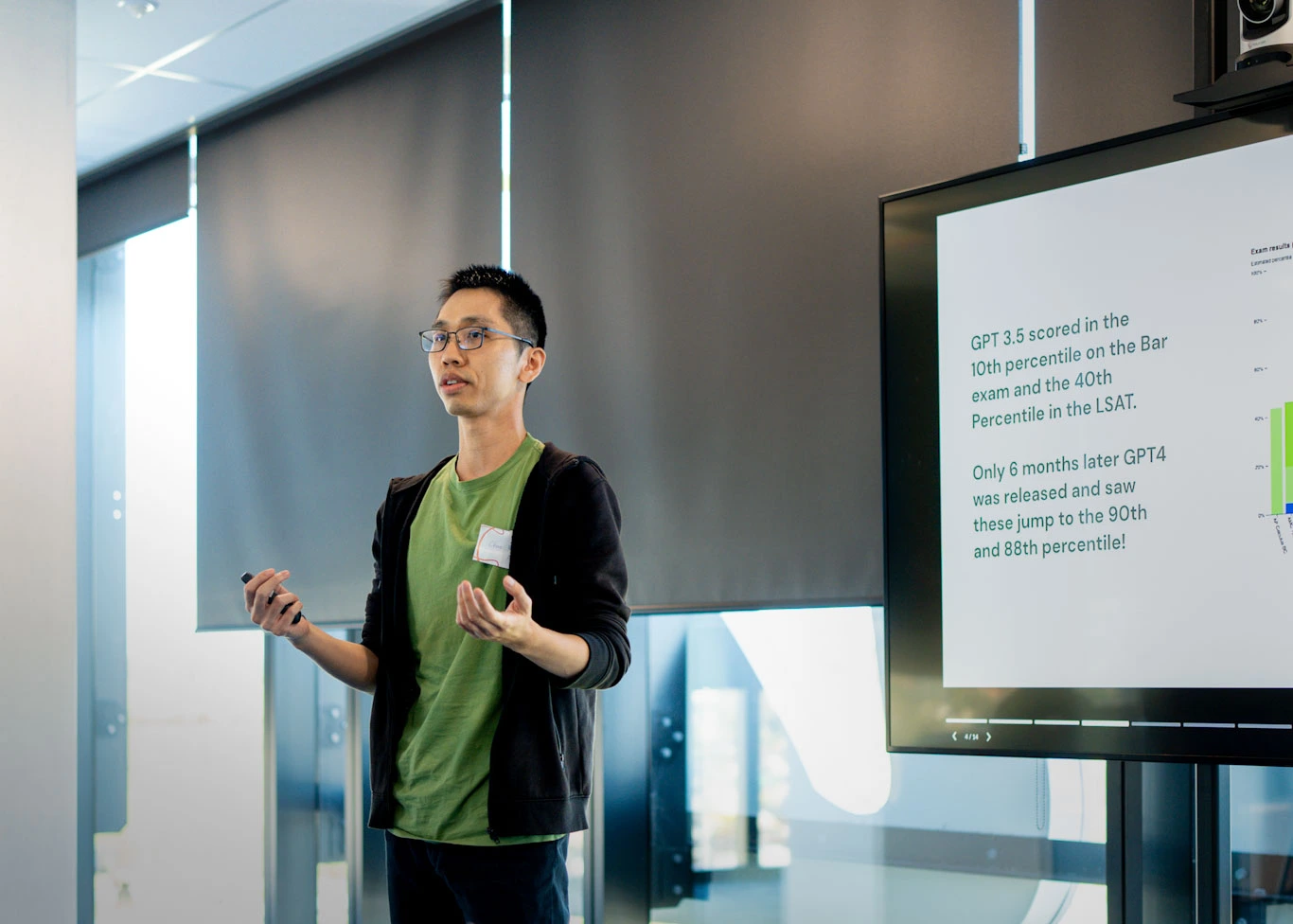It was an incredible opportunity for me to delve into one of my most cherished topics – the power of Artificial Intelligence (AI). Being a firm advocate of AI’s ability to revolutionise our lives, I was ecstatic to interact with like-minded individuals who shared my zeal for this transformative technology.
Our recent survey asked our audience, “How are you utilising ChatGPT in your daily life and business?” The responses we received were nothing short of astonishing.

What makes ChatGPT so significant
The advent of the General Language Processing Technology (GPT) 3.5 marked a significant milestone in the evolution of AI. Unlike its predecessors, GPT-3.5 was versatile and intelligent, capable of processing natural language and performing complex tasks like language translation, text summarisation, and even writing high-quality articles. However, the evolution of AI continued. GPT-4 promises to take things to a new level, further refining and enhancing natural language processing and generation. It is anticipated that GPT-4 will revolutionise the field of AI with improved accuracy, faster response times, and a deeper understanding of language, ushering in a new era of intelligent machines.
However, as AI continues to evolve, it is crucial to address its ethical considerations. It is essential to ensure that technology benefits humanity and does not harm society. As we look towards the future, we must remain vigilant and proactive in developing responsible AI practices, ensuring this powerful technology is used to make the world a better place for everyone.
The use of AI is not without dangers.
While using AI tools has the potential to revolutionise our work, it has inherent risks. As with any emerging technology, it is crucial to navigating the complex web of laws and regulations that govern their use, ensuring compliance and avoiding any potential legal implications.
AI algorithms’ sheer sophistication and ability to create synthetic content, such as deep fakes, blur the line between reality and fiction. As such, it is essential to remain vigilant and continuously develop new ways to detect and mitigate the impact of disinformation.
And while AI tools offer tremendous opportunities to enhance our work processes, we must remain cognizant of the risks involved. By being proactive in addressing legal and ethical considerations, establishing robust data governance frameworks, and staying vigilant against the spread of disinformation, we can safely harness the power of AI for the betterment of society.

Integrating AI into work life
Businesses have a wealth of AI tools that can significantly enhance their operations and decision-making capabilities. Industry heavyweights such as Microsoft, Google, SalesForce, Adobe, and IBM have embraced these game-changing technologies. Yet, there remains ample room for innovative enterprises to capitalise on AI’s potential to streamline processes, automate tasks, and drive data-informed decision-making. By leveraging these tools, businesses can achieve unprecedented efficiency, profitability, and customer satisfaction, paving the way for unparalleled success in their respective fields.
Our “AI is Here” segment has equipped our audience with an extensive repertoire of top-tier AI tools and strategies to seamlessly integrate them into their workflows. In case you missed this invaluable resource, don’t hesitate to contact us, and we’ll promptly furnish you with a copy of our data-driven presentation.

Talk to an AI Integration Professional
As a pioneer in digitisation, I have led numerous groundbreaking projects incorporating cutting-edge AI technology. I invite you to explore our collection of case studies to learn more about the extraordinary results we’ve delivered for some of New Zealand’s most beloved brands.
Stay connected with me on LinkedIn and join our engaging #AITalks discussions on social media platforms. Follow us on Facebook, Instagram, and LinkedIn to stay up-to-date on Putti’s latest AI trends, news, and insights.

